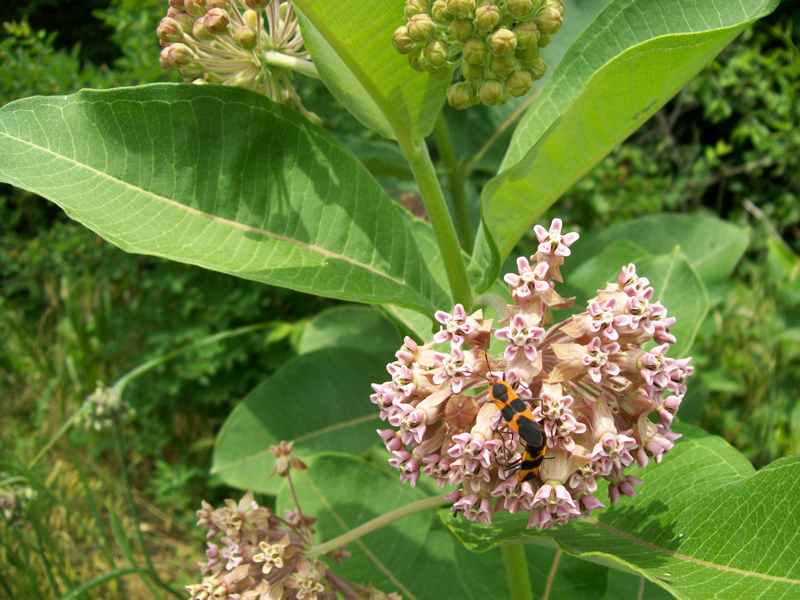Saturday, June 25, 2011
Common milkweed
Every once in a while I find a flower that I can identify without going to the guide books. Common milkweed, Ascelpias syriaca, is one of them. It has rather pale flowers that are not as attractive as the flowers of swamp milkweed, which blooms a lot later. It is a perennial and a native plant.
The bugs in the photo above are probably milkweed bugs.
Milkweed is a favorite food for the caterpillars of the Monarch butterfly. It can also be human food, though I have not had the desire, much less the courage, to try it. The plant is known for having a toxic sap, and the few insects that feed on the plant are able to incorporate that toxicity as a defense against predators. Its seed pods are often used as decorations.
The bugs in the photo above are probably milkweed bugs.
Milkweed is a favorite food for the caterpillars of the Monarch butterfly. It can also be human food, though I have not had the desire, much less the courage, to try it. The plant is known for having a toxic sap, and the few insects that feed on the plant are able to incorporate that toxicity as a defense against predators. Its seed pods are often used as decorations.
Subscribe to:
Post Comments (Atom)




2 comments:
I think there is a swamp milkweed plant about to bloom in our garden. The leaves are narrow and the burgeoning buds have a rosy hue. But isn't this rather early in the summer for swamp milkweed blossoming? Might the numerous above average temps in June account for this early blossoming?
If the flowers are orange, it might be butterfly weed, an attractive milkweed that is sometimes grown in gardens. It is blooming now.
Post a Comment